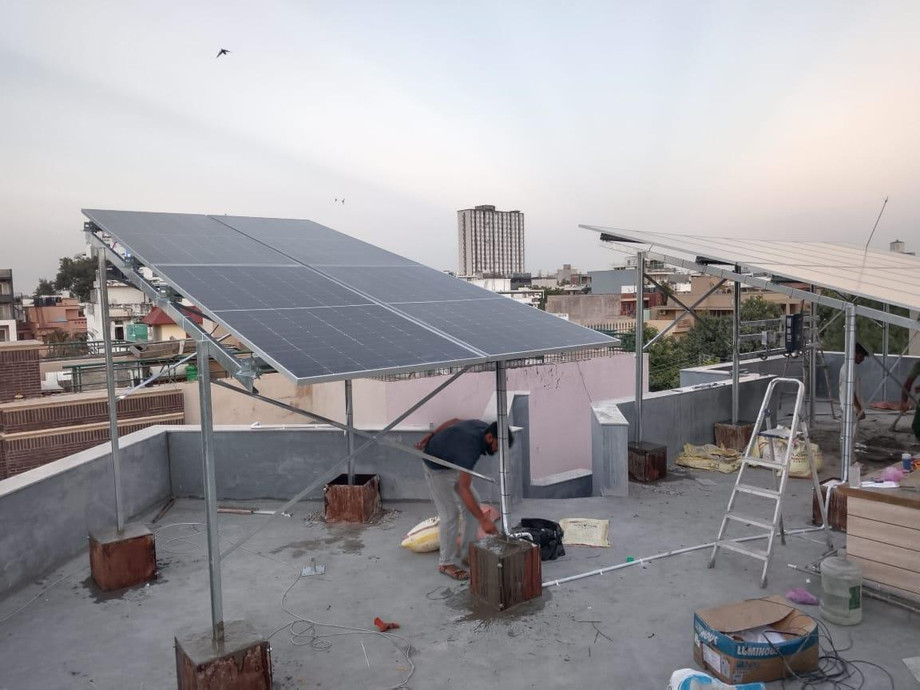The shift toward sustainable energy sources has become a pressing need for urban areas across India. Among the available options, rooftop solar installations have emerged as a game-changer in transforming urban living. Harnessing solar power is not just about saving electricity costs; it is a step toward creating a cleaner, greener, and more sustainable urban environment.
1. Lower Electricity Bills for Households and Businesses
The most immediate benefit of rooftop solar installations is the significant reduction in electricity bills. Urban households and businesses can generate their own electricity, reducing their dependence on conventional power grids. This is especially true in states like Haryana, where the government offers incentives for adopting rooftop solar installations.
2. Energy Independence
Urban dwellers often face issues like power cuts and fluctuating energy costs. Rooftop solar installation in Haryana allows users to become energy independent, providing a reliable source of electricity even during grid outages. With advancements in battery storage, solar energy can be stored for use at night, further enhancing energy reliability.
3. Reduction in Carbon Footprint
Solar power is a clean and renewable energy source. By opting for rooftop solar systems, urban residents can significantly reduce their carbon footprint. This not only benefits the environment but also aligns with India’s commitment to reducing greenhouse gas emissions under the Paris Agreement.
4. Enhanced Property Value
Properties equipped with rooftop solar installations are more attractive to buyers and renters. In urban areas, where energy efficiency is becoming a top priority, homes with solar panels installed are often valued higher. This trend is evident in places like Haryana, where awareness of sustainable living is rapidly growing.
5. Contribution to National Energy Goals
India has set ambitious renewable energy targets, with solar power being a major component. By adopting rooftop solar systems, urban areas can contribute to these national goals, reducing the reliance on fossil fuels and making the energy sector more resilient.
6. Improved Air Quality in Urban Areas
Urban regions in India often struggle with poor air quality due to high levels of pollution from thermal power plants and vehicular emissions. Solar energy production is entirely pollution-free, helping improve air quality and public health in densely populated cities.
7. Government Incentives and Subsidies
The government of India, along with state governments like Haryana, offers various subsidies and incentives to encourage the adoption of solar power. These financial benefits make rooftop solar installation in Haryana a cost-effective option for urban residents. Net metering policies further allow users to sell excess electricity back to the grid, making solar energy a lucrative investment.
8. Minimal Maintenance Costs
Once installed, rooftop solar systems require minimal maintenance. This is particularly advantageous in urban areas where regular upkeep of infrastructure can be challenging. Periodic cleaning and occasional check-ups are enough to ensure efficient operation.
9. Job Creation and Economic Growth
The rise in rooftop solar installations is driving job creation in urban areas. From system design and installation to maintenance and support, the solar industry is opening up new opportunities for skilled and unskilled workers alike. Haryana, with its focus on renewable energy, is becoming a hub for solar-related employment.
10. Resilience Against Rising Energy Costs
Energy costs in urban areas are on a constant rise. Rooftop solar systems shield users from these fluctuations, offering long-term financial stability. As fossil fuel prices increase, the cost of solar energy continues to decline, making it a future-proof investment.
The Role of Haryana in Promoting Rooftop Solar Installations
Haryana is leading the way in promoting rooftop solar systems, with various initiatives aimed at increasing adoption. Urban areas in Haryana are ideal for solar energy due to high sunlight availability and supportive government policies. The state’s Solar Policy offers generous subsidies, net metering facilities, and streamlined procedures for system installation.
For instance, cities like Gurgaon and Faridabad have seen a surge in solar installations, driven by both commercial and residential users. Haryana’s proactive stance on renewable energy is setting an example for other states, showcasing how urban living can be transformed through solar power.
Final Thoughts
Rooftop solar installations are not just a trend but a necessity for sustainable urban living in India. From lowering electricity bills to contributing to environmental conservation, the benefits of adopting solar power are numerous. In states like Haryana, the advantages are amplified by government support and favorable geographic conditions.
Adopting rooftop solar systems is not just an investment in energy efficiency; it is an investment in the future of urban living. As more cities embrace this renewable energy source, we move closer to creating a cleaner, greener, and more sustainable urban environment.











